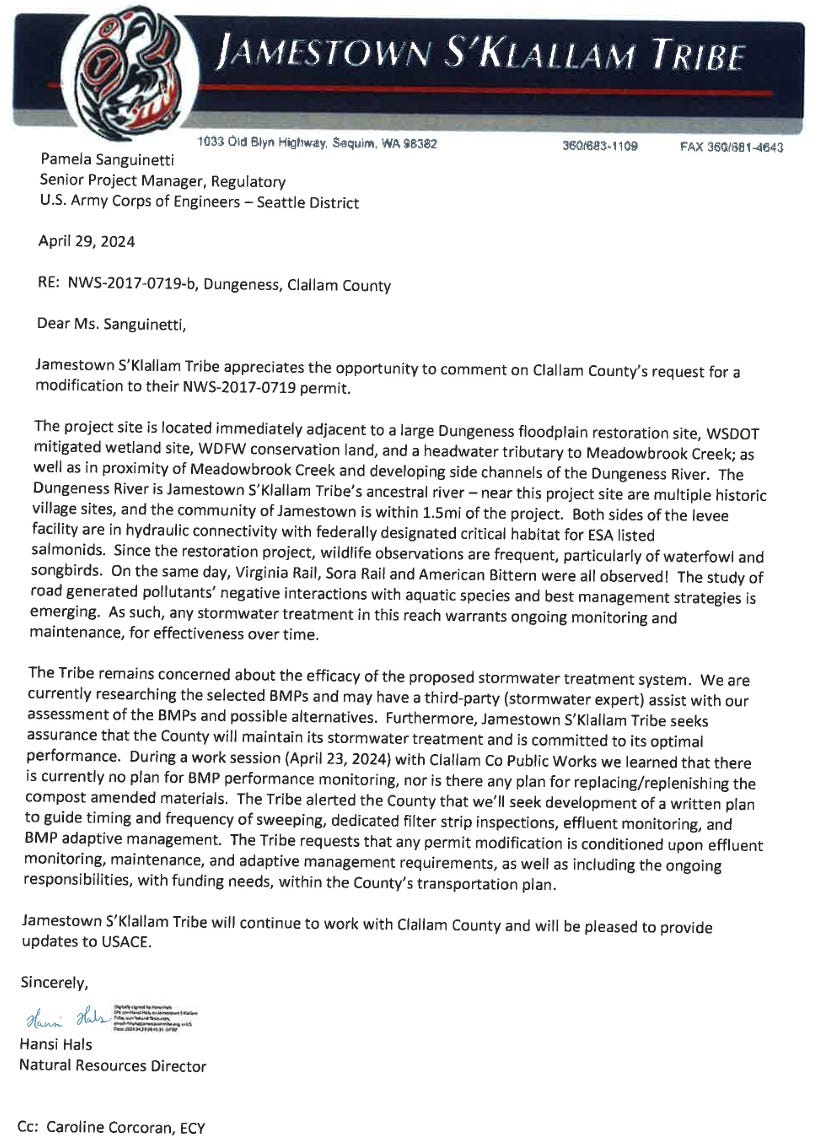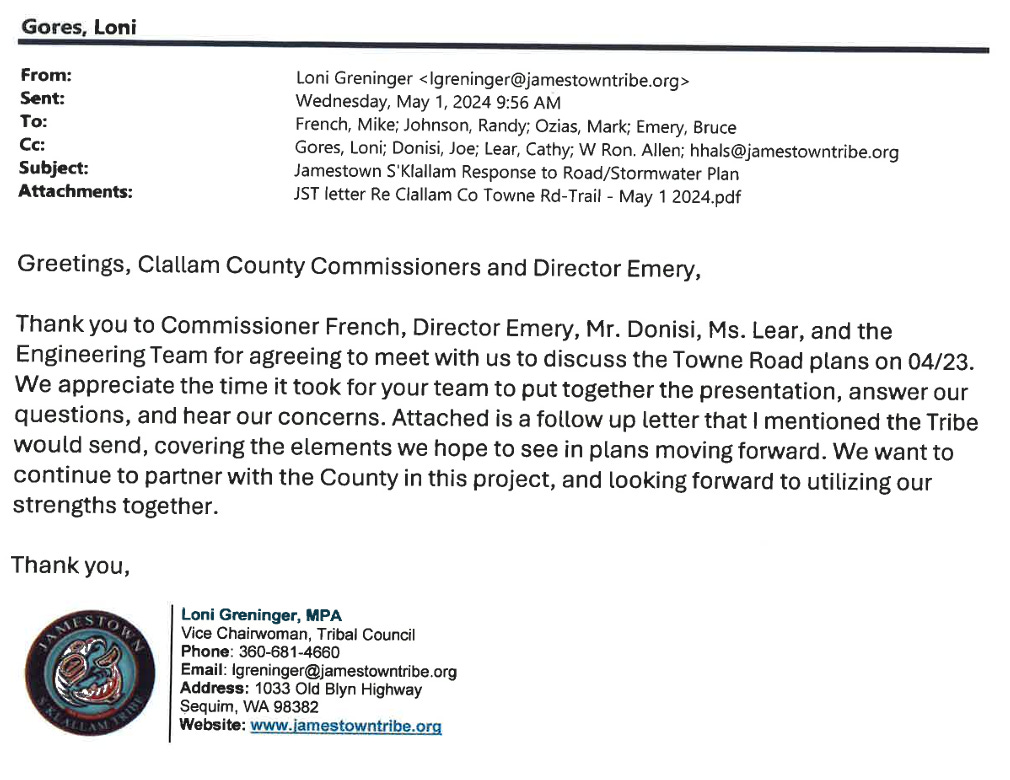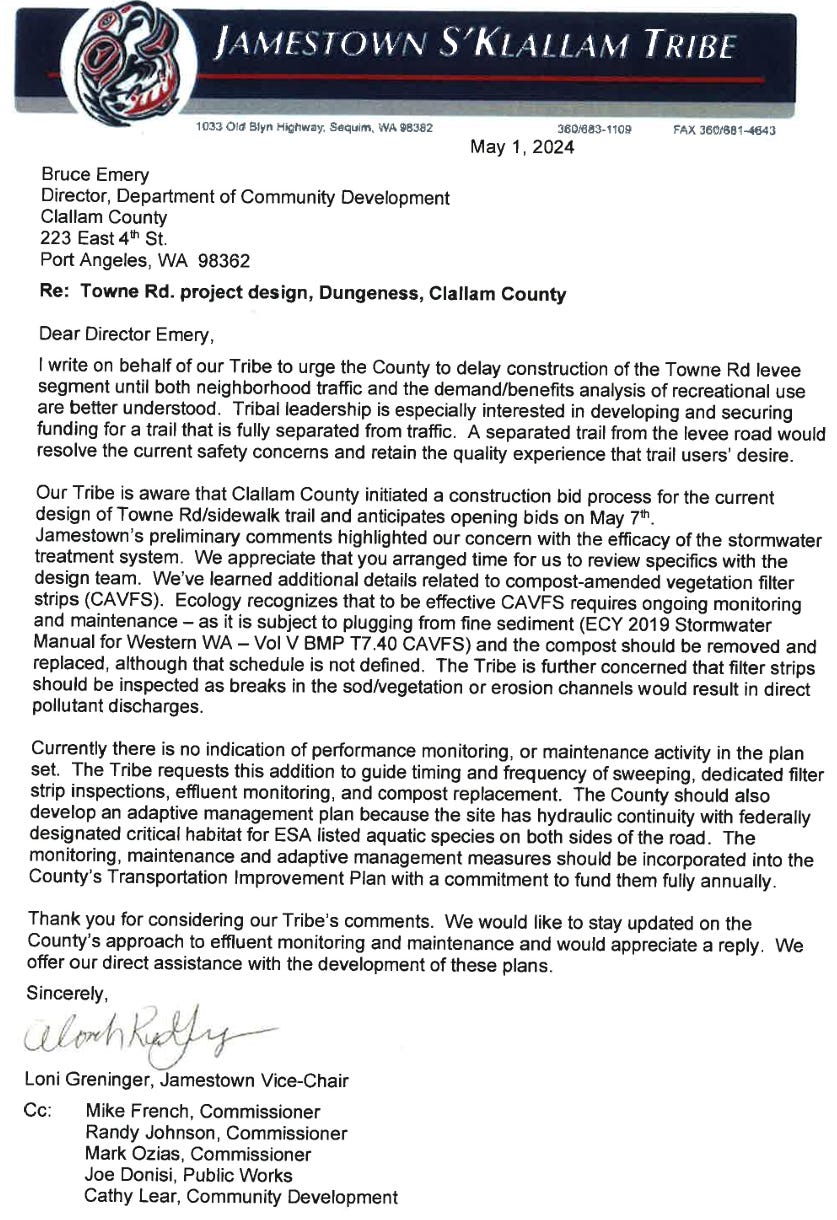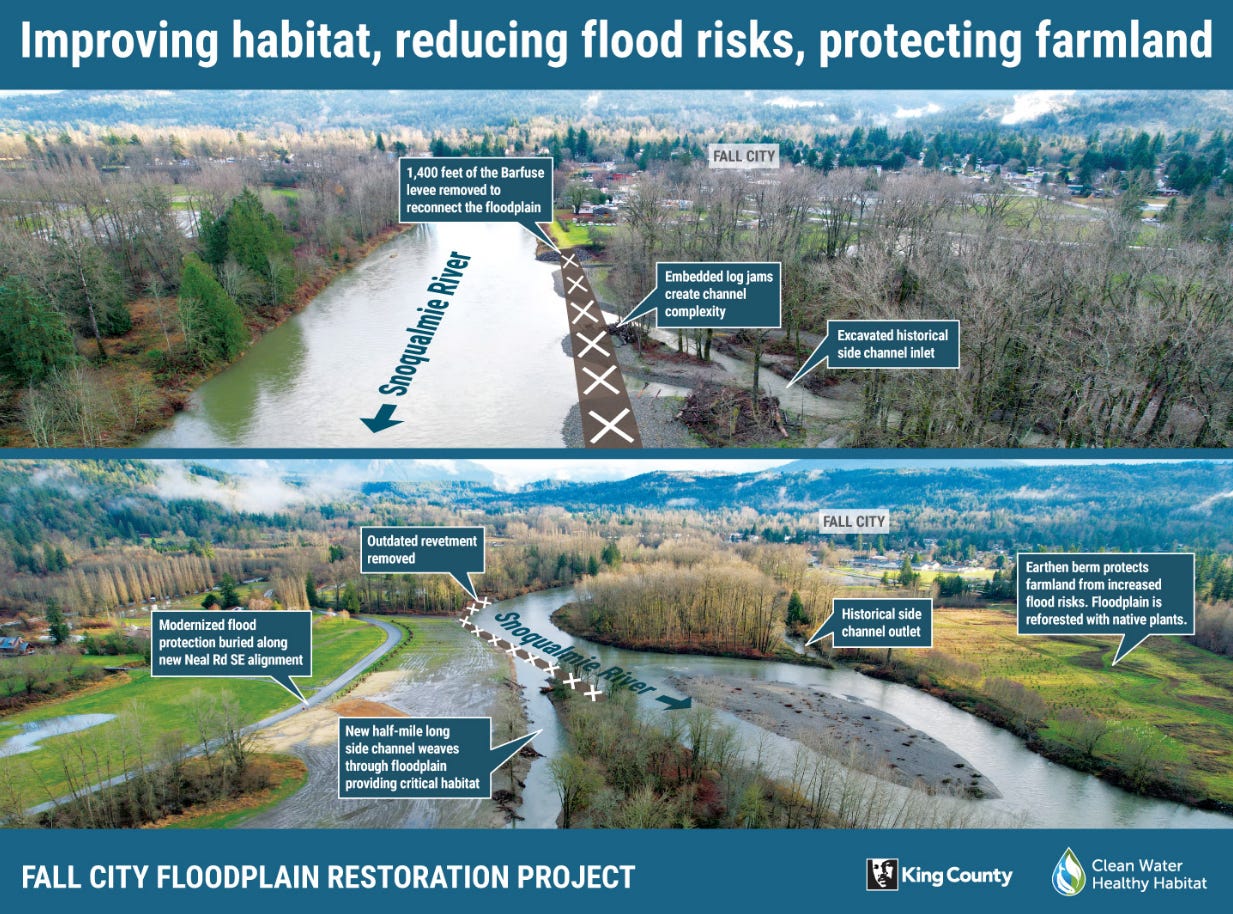About 240 Jamestown S'Klallam Tribal members live in this area — roughly one-third of one percent of Clallam County's total population. Yet the Jamestown Tribe, meaning the corporation and governing structure, not the Tribal members, has tremendous influence over the other 99.7% of people who call Clallam County “home.”
The Tribe is so influential that it miscommunicated with the County, deliberately demolished a dike, exposed an entire community to flood risk, left taxpayers accountable for millions of dollars to fix their blunder, and suffered no repercussions.
The Tribe has so much clout that it requested a public road be closed to serve as an "outdoor classroom," and County leaders entertained the notion.
The Tribe attended an invitation-only meeting where it was determined that closing a road would increase emergency response times and home insurance rates for Dungeness. The Tribe had so much sway that the County still supported their decision to keep the road closed.
The Tribe continued to say that Towne Road must remain closed, even after a family was rendered homeless when responding engines were delayed in reaching a house fire due to Towne Road being gated and locked. The Tribe’s desire to keep the road closed was so significant that the County ignored the impact on public safety and supported the Tribe’s stance.
After all that, the people's elected representatives — the Clallam County Commissioners — wrote a letter of apology to the Tribe for not doing better. The Tribe then bid on completing the Towne Road project, which it had opposed, delayed, and unfunded.
That is how influential and powerful the Jamestown Tribe is.
The Tribe's actions are puzzling, particularly when they attempt to seize a county road and ban the public from using it (after the Public, not the Tribe, has paid for it). These actions are becoming more frequent, as evidenced by two new letters that dismiss the professional views of two fire chiefs, the sheriff, the Community Emergency Response Team (CERT), and Washington State's Tsunami Program Manager.
The Tribe also questions the competence of Clallam County's Chief Engineer, Habitat Biologist, the Department of Community Development, the Department of Ecology, and the Army Corps of Engineers, further highlighting the Tribe's disregard for professional expertise.
The first letter, to the Army Corps of Engineers, expresses concern that the Tribe's project partner for the last decade, Clallam County, does not have an effective stormwater treatment system for Towne Road. The Tribe's Natural Resources Director, Hansi Hals, wrote the Army Corps to notify them that "the Tribe alerted the County that we'll seek development of a written plan to guide timing and frequency of sweeping, dedicated filter strip inspections, effluent monitoring, and BMP adaptive management."
The County's stormwater treatment system exceeds stringent guidelines mandated by the Department of Ecology, making Towne Road the county's most environmentally friendly road.
The second letter is another request that the completion of Towne Road be delayed so a plan can be developed to separate the trail from the road entirely. The original Dungeness Levee Trail, which ran beside the river, was demolished by the Jamestown Tribe when the dike was removed. Even though the river isn't within sight of Towne Road, the County has adapted the design (at great expense) to incorporate a 0.6-mile-long trail. Still, the Tribe is dissatisfied with that accommodation. The Tribe has renewed its request that the County supply a schedule for monitoring stormwater, and they want the County to pay for it.
The Lower Dungeness River Floodplain Restoration isn't the first County-Tribal partnership to improve a river's habitat. Recently, King County successfully completed the 145-acre Fall City Floodplain Restoration Project which improved habitat and protected farmland and homes along the Snoqualmie River. Like the Towne Road Levee Project, part of the design relocated a public road. King County and the Snoqualmie Indian Tribe improved the river habitat and relocated the road as planned without plunging the entire infrastructure project into turmoil at the eleventh hour.
This is an example of project partners working together: goals were set, partners communicated, and goals were met without a barrage of letters, ever-changing demands, and apologies. The Fall City Floodplain Restoration will be remembered as a legacy project that met objectives while serving an entire community, not special interests.
Will the Dungeness Floodplain Restoration and Towne Road Levee projects be remembered as successes or as warnings of the catastrophic failure that awaits project partners who don't share a common goal? This collaboration’s most successful legacy may be exposing how poorly Clallam County and the Jamestown Tribe work together.
Towne Road update
Commissioner Ozias was absent for last week's scheduled interview on KONP radio, but County Engineer Joe Donisi gave a promising update that is worth listening to here.







Well done. There is a clear distinction between Tribe-the-business / its leadership and the tribal members. This is about a business leveraging its position to manipulate the county to benefit said business - not the county's citizens. Because they have "tribe" in their company name, they are given a certain amount of leeway that any other business entity would not get. The tribe-as-a-business can switch hats when it suits them. If it were simply a business, the scrutiny would be unbelievable. In this day and age, it is not PC to say "no" to anything associated with "the tribe". That's unfortunate.
The delaying tactics for Towne Road by the tribe-business and the DLTA-business (because, as one of the Eberles said, "this is not a charity") are so that the Towne Road grant money expires. If they can get it delayed past the end of the year, the grant money will expire. Then what? Isn't that grant money something like $1.6M?
IF THAT HAPPENS: I hope many of us will be ready to seek collective legal counsel because all bets are off at that point that Towne Road will ever re-open.
How will it look before a court when the Tribe-business says on one hand, "we must delay the re-opening of the road" for (fill-in-the-blank-green-washing-reason) and on the other hand they say, "Here we present our competitive bid on completing Towne Road to you, County Commissioners"?
And then there are the Eberles/private landowners/co-founders of DLTA who have pretty much exclusive use of the road while it's closed....
"Tire wear particles and 6PPD-q kills salmon, the road must be closed!"
Closely followed by:
- hosting a gathering at their barn-that's-not-a-venue that had over 50 vehicles traversing Towne Road (that very road they don't want re-opened)
- driving heavy farm machinery and personal vehicles over sensitive wetlands and around Meadowbrook Creek (both happen to be on their property so they can kill all the salmon they want?)
- driving wrecklessly on Towne Road with their personal vehicles. A friend noted these people regularly drive too fast on the gravel road bed, whether people are walking there or not. This is certainly a subjective call but if a pedestrian has to be concerned about being hit by a car while walking on what DLTA says is a "safe place" to walk because the road is closed to everyone except a few, well, those vehicles are probably going too fast.
Collaborate, yes. Control, dictate, demand, threaten, bribe, sabotage, no.